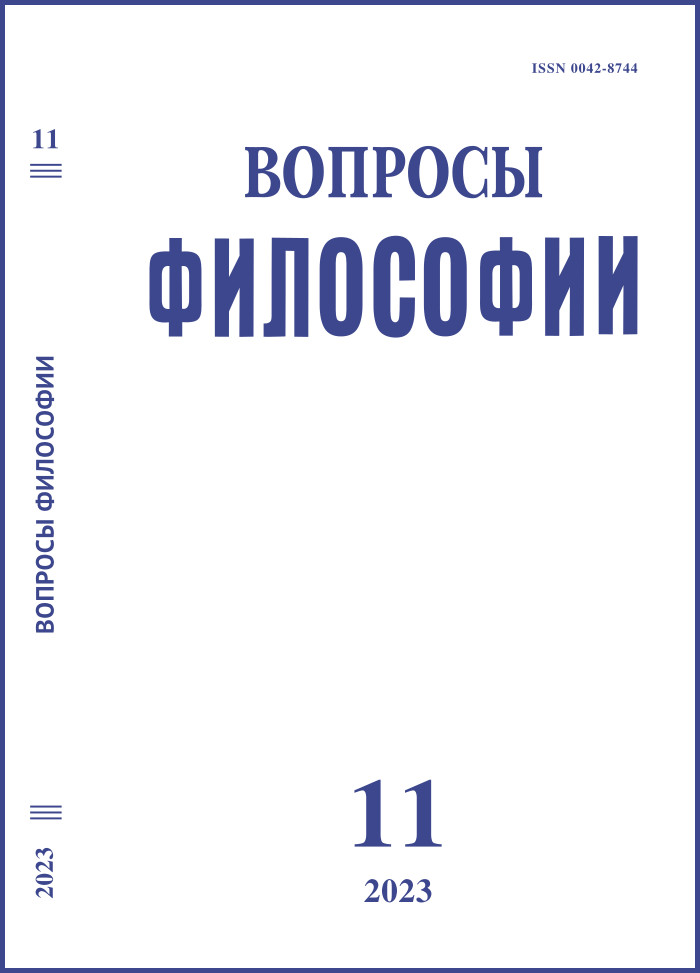Gone into the Forest in Search of the Pantry of the Sun: Mikhail Prishvin’s Philosophy of Salvation
DOI:
https://doi.org/10.21146/0042-8744-2023-11-16-22Keywords:
personalism, participatory thinking, social ontology, dialogue, philosophical plot, panpsychism, hylozoism, Russian cosmism, forest soteriology, ecotheology.Abstract
The article reconstructs the main aspects of Mikhail Prishvin’s philosophy of salvation. Prishvin’s soteriology goes back to the Neoplatonic tradition, its transformation in the myth of the Invisible City, the source of which is the idea of the true earth of Plato, the city of God by Aurelius Augustine, the unity of Vl. Solov’ev. The writer’s diaries and prose are united by the intuition of “resurrection from a number”. The optics of kindred attention, distinguishing love proposed by Prishvin as an alternative to object thinking (thinking of number that does not distinguish between persons) gives an answer to the questions of his modernity – about spiritual resistance to technogenic collectivism and an alternative way of mutual knowledge of nature and space in in general. The philosophical plots of Prishvin are included in the family of ideas of the thinking collective, uniting the seeking city of the Russian Laientheologie of the 19th century (F. Dostoevsky; L. Tolstoy; N. Fedorov; Vl. Solov’ov), existential philosophical tradition, Christian personalism and dialogism of the 20th century (M. Heidegger, E. Junger, V.V. Bibikhin, V.V. Rozanov, A.A. Meyer, M.M. Bakhtin, A.A. Ukhtomsky). Prishvin’s reasoning about the world as a living whole turns out to be consonant with the hylozoism of J.W. Goethe, D. Andreev’s panpsychism, the concept of ongoing creation in cosmism by A.K. Gorsky and V. Muravyov, Teilhard de Chardin’s Christian evolutionism; modern Christian ecology of T. Goricheva; ecotheology of R. Bauckham, C. Moe-Lobeda, Steven Bouma-Prediger, and John F. Haught.

